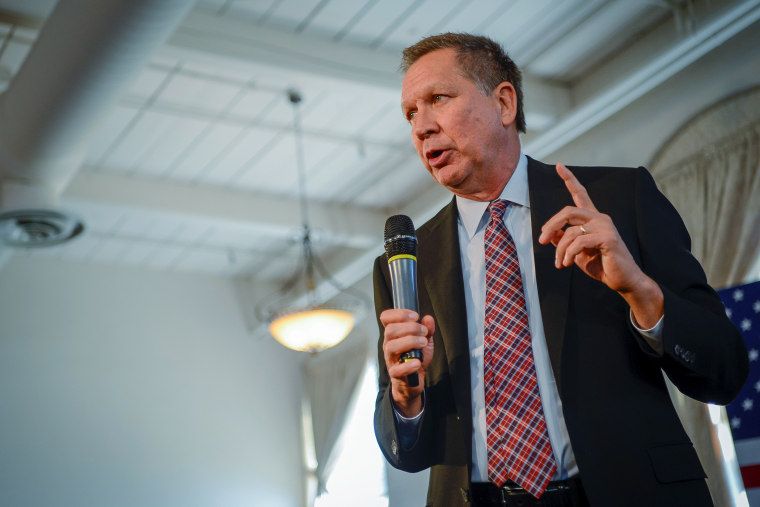It's the sort of basic truth that most Americans take for granted: you live in a state; you pay federal taxes; and you have the right to elect U.S. House members and U.S. senators to represent you and your interests. To deny American citizens this right would be the imposition of taxation without representation.
There is, however, an exception. Between Virginia and Maryland there's an area known as Washington, D.C. -- home to nearly 700,000 American citizens who live in the nation's capital and pay federal taxes, but who have no voice in Congress*.
It is a serious and systemic flaw. The
Washington Post's editorial board asked Ohio Gov. John Kasich (R) what he thinks about this.
His answer was refreshing in its candor, but discouraging in its principles.
When asked his position on D.C. voting rights, Republican presidential contender John Kasich didn't pretend to draw on any constitutional clause or existing law to explain his stance against it. Instead, the Ohio governor stated the political reason that many already perceive as the biggest obstacle standing between D.C. and congressional voting representation: Giving D.C. voting representatives in Congress would mean more Democrats in Congress.
"What it really gets down to if you want to be honest is because they know that's just more votes in the Democratic Party,"
Kasich said yesterday.
Well, yes, we do "want to be honest." We also want a principled policy that's defensible and treats Americans fairly.
As a rule, Republican opponents of congressional representation for D.C. residents at least pretend to have other concerns. There are, for example, legitimate legal questions that are at least worthy of a debate.
But Kasich seems to have forgotten to stick to the usual GOP script. Instead, the candidate accidentally told the truth as he sees it: it'd be nice to give these hundreds of thousands of taxpayers a voice in their own government, but D.C. residents would likely elect Democrats if given the opportunity, so it's necessary to deny them that opportunity.
In fairness to the governor, this was part of a lengthy conversation, and he hemmed and hawed as part of the interview. To appreciate the full context,
click the link, but this was the relevant portion of the discussion:
POST: But you realize though that people in D.C. pay taxes, go to war and they have no vote in Congress. KASICH: Yeah. POST: How is that– KASICH: Well look, I am not – I don't – I am not, because you know what, what it really gets down to if you want to be honest is because they know that's just more votes in the Democratic Party. That's what– POST: So if there were Republicans in the District, you would have a different position? KASICH: Yeah, okay, well look, they send me a bill, I'm president of the United States, I'll read your editorials.
That last question is of particular interest. Imagine there was an area in the United States with 700,000 taxpaying American citizens -- conservative American citizens -- and they were deliberately denied a voice in the United States Congress.
What do you suppose the odds are that such a dynamic would be quickly rectified?
* D.C. residents are allowed to elect a representative in the U.S. House, but unlike actual members, she's not permitted to vote on anything. They lack representation in the Senate altogether.
